Are you considering expanding your academic horizons through cross-registration? This innovative process allows students to take courses at different institutions, unlocking new opportunities and experiences. Whether you're eager to explore diverse subjects or collaborate with fellow students from various backgrounds, cross-registration can enhance your educational journey. Join us as we delve into the details of the application process, and discover how you can take advantage of this exciting opportunity!

Student Information and ID Number
A cross-registration application process involves students from one educational institution applying to take courses at another institution, which enriches academic experience and expands course offerings. Student information, including the student's name, contact details, and ID number (a unique identifier assigned by the home institution), is crucial for processing the application efficiently. This identification ensures academic records are accurately maintained, allowing the host institution to verify enrollment status and course prerequisites. Proper documentation, including transcripts and approval from academic advisors, may also be required for a successful application.
Course Details and Justification
The cross-registration application process for university courses requires detailed information. Applicants must specify the course name, such as "Introduction to Psychology," along with the course code, for example, "PSY201." They should identify the university offering the course, such as "State University," and the semester intended for enrollment, such as "Fall 2023." Justifications for cross-registration should include academic benefits, like gaining access to specialized faculty or unique resources unavailable at the home institution, and how the course aligns with degree requirements. Highlighting the relevance of course content to current academic pursuits, such as enhancing knowledge in behavioral science for a future career in mental health, strengthens the application. Additionally, stressing personal motivation and dedication to succeed in the course can further support the request.
Host Institution and Program Information
The cross-registration application process enables students to broaden their academic experiences by enrolling in courses at different institutions. Host institutions, such as universities or colleges, offer specialized programs that may not be available at a student's home institution. Programs typically specify the course offerings, including identifiers like course codes and titles, credit values, and the semester or term during which they are available. For example, a host institution may be a prestigious university like Harvard University, renowned for its rigorous curriculum or a state university offering unique programs in environmental science. Prospective students must ensure compatibility with their home institution's degree requirements and obtain necessary approvals, often documented through formal applications submitted ahead of registration deadlines. Key details often include academic advising signatures and course descriptions for clarity in the transfer process.
Approval and Signatures Required
The cross-registration application process for students seeking to enroll in courses at multiple institutions often requires comprehensive documentation and approvals from respective academic departments. Detailed information, including the applicant's full name, student identification number, and the intended courses at both the home institution (e.g., University of California, Berkeley) and the hosting institution (e.g., San Francisco State University), must be clearly outlined. Signatures from academic advisors or department chairs at both institutions verify approval, ensuring compatibility with the curriculum and academic standards. A deadline for submission, typically aligned with the academic calendar (such as the beginning of a semester), is crucial to facilitate timely processing of the application.
Contact Information for Correspondence
Cross-registration applications for university enrollment typically require detailed contact information for correspondence. Including the student's full name, current mailing address, and personal email (preferably university-affiliated) ensures efficient communication. Specifying a phone number, ideally a mobile one, allows for quick updates or clarifications from the registrar's office. Additional information, like the degree program and student ID number at the home institution, may facilitate the processing of the application. Providing a reliable method for further inquiries emphasizes the student's commitment to maintaining open channels during the cross-registration process.
Letter Template For Cross-Registration Application Samples
Letter template of cross-registration application for special circumstances
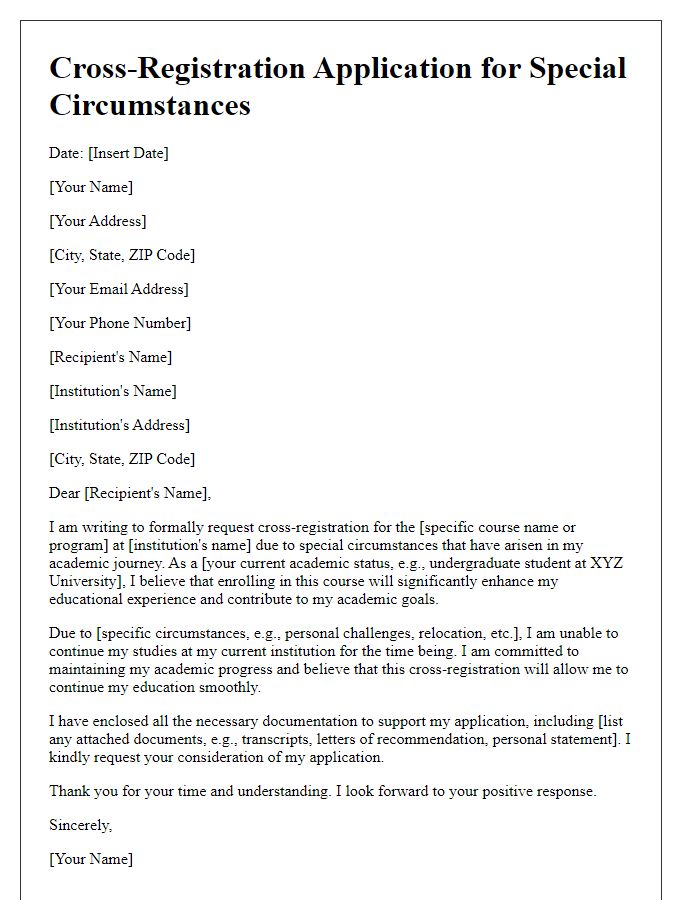
Letter template of cross-registration formal request for exchange students
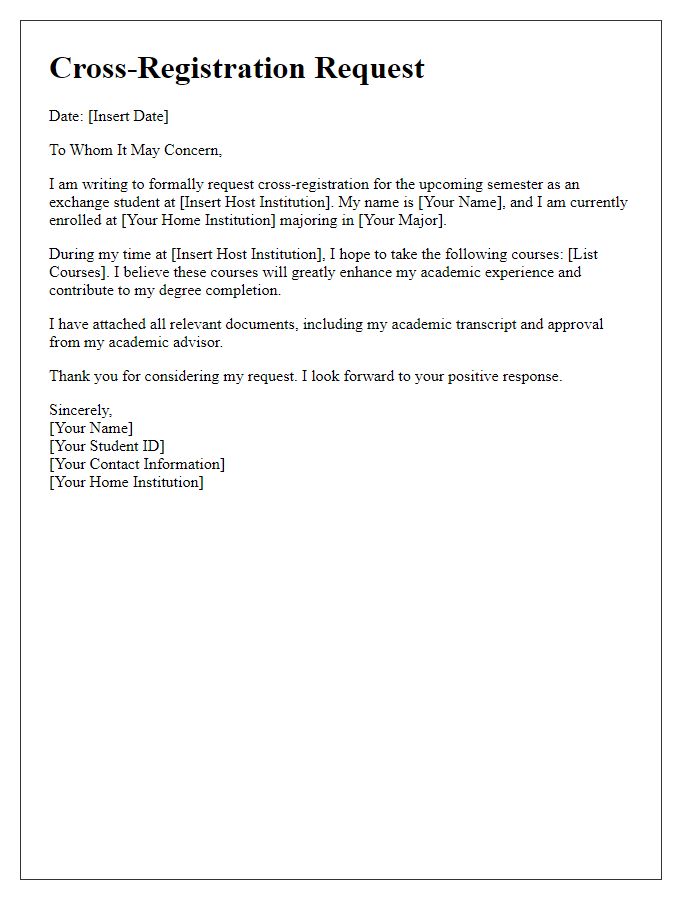
Letter template of cross-registration application for online course participation
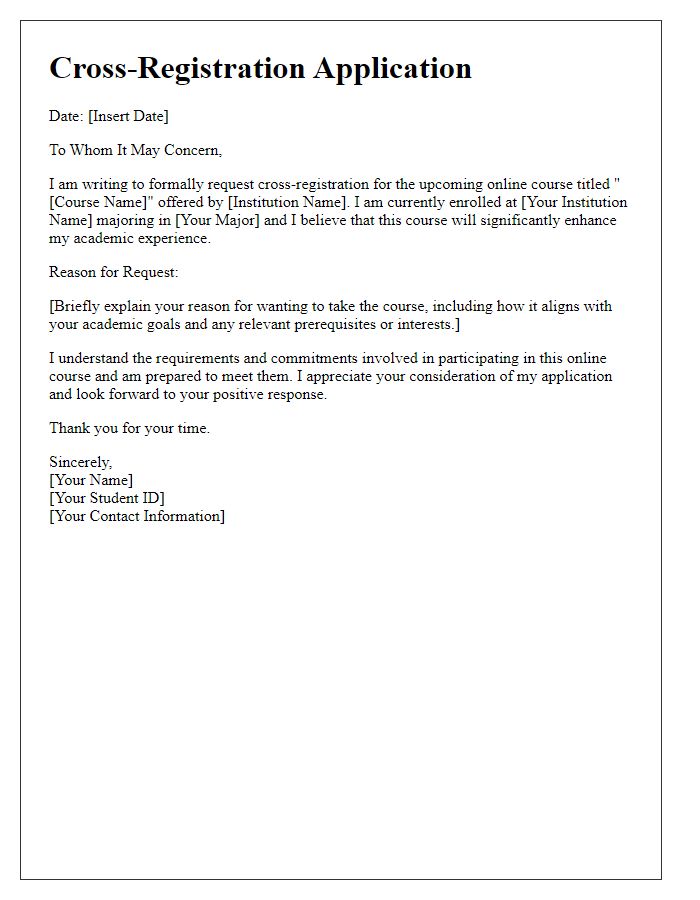
Letter template of cross-registration submission for inter-institutional cooperation
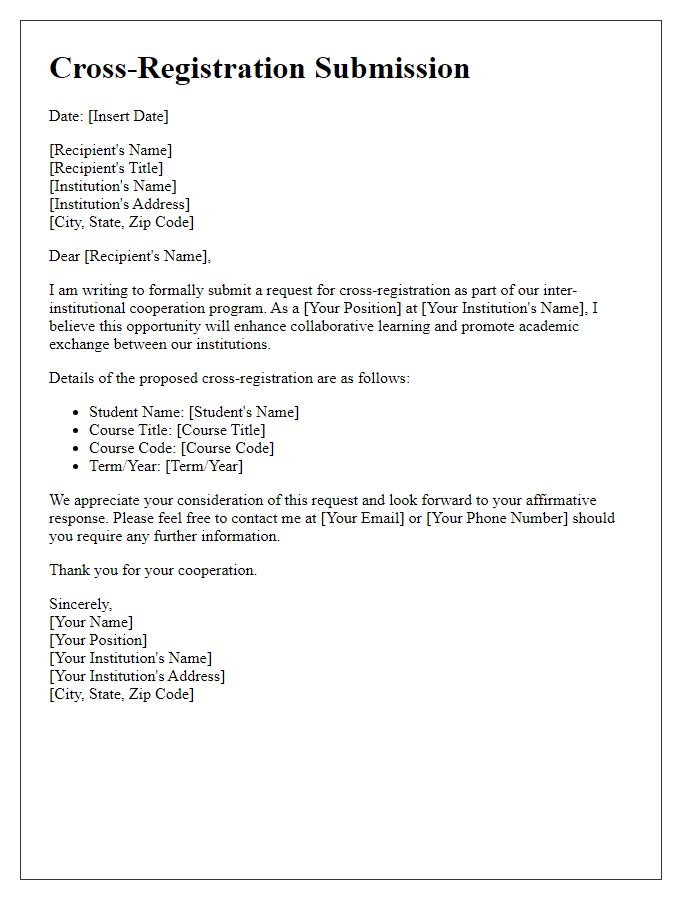
Letter template of cross-registration notification for academic credit transfer
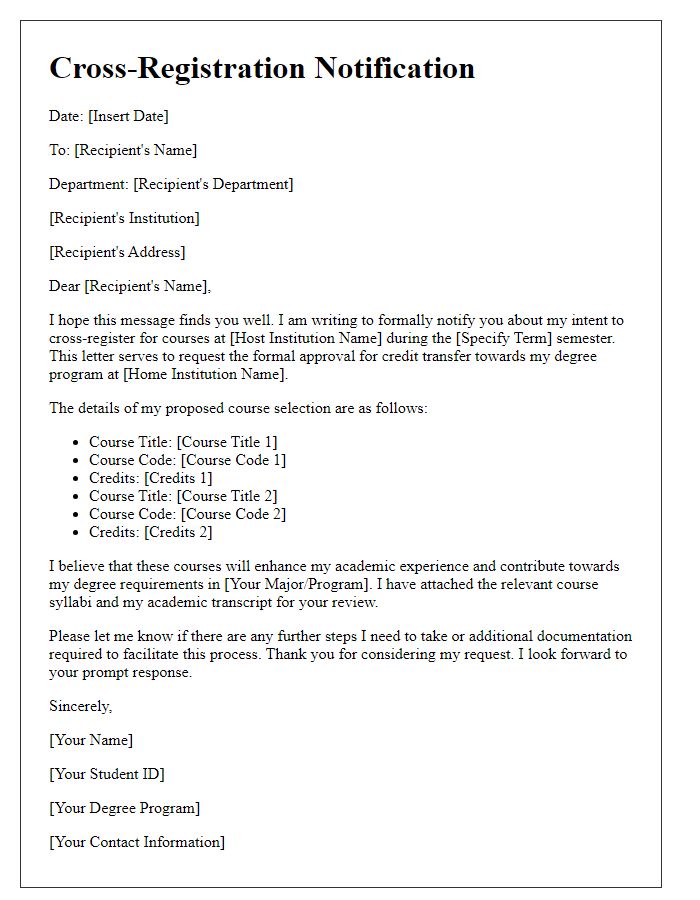

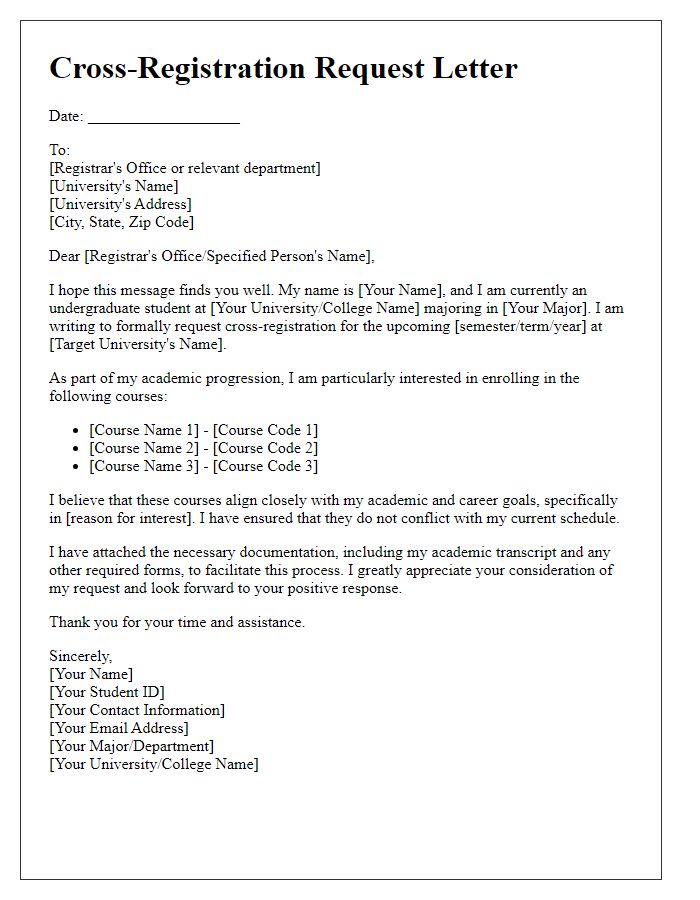
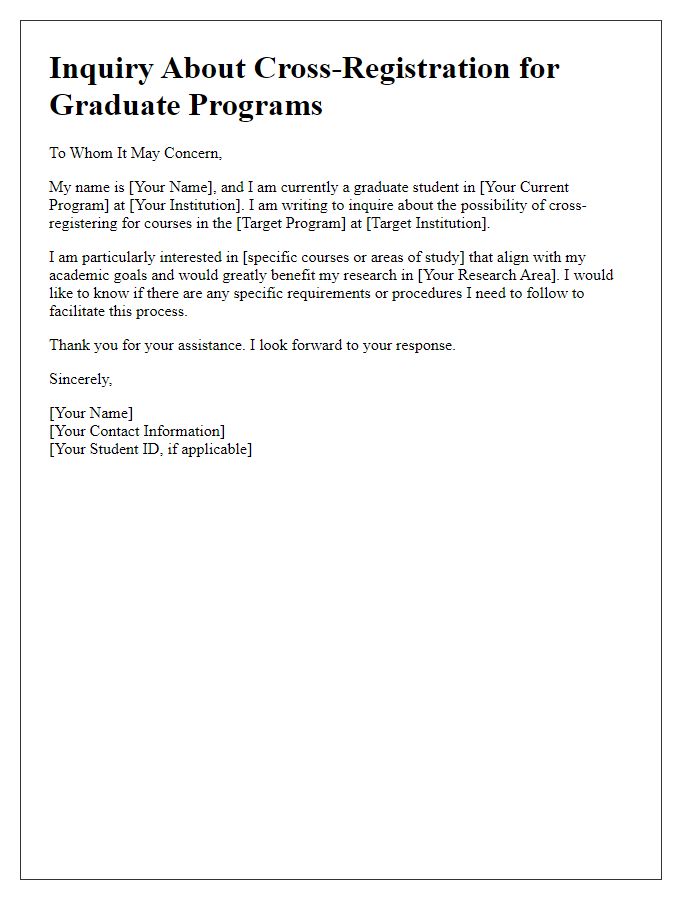
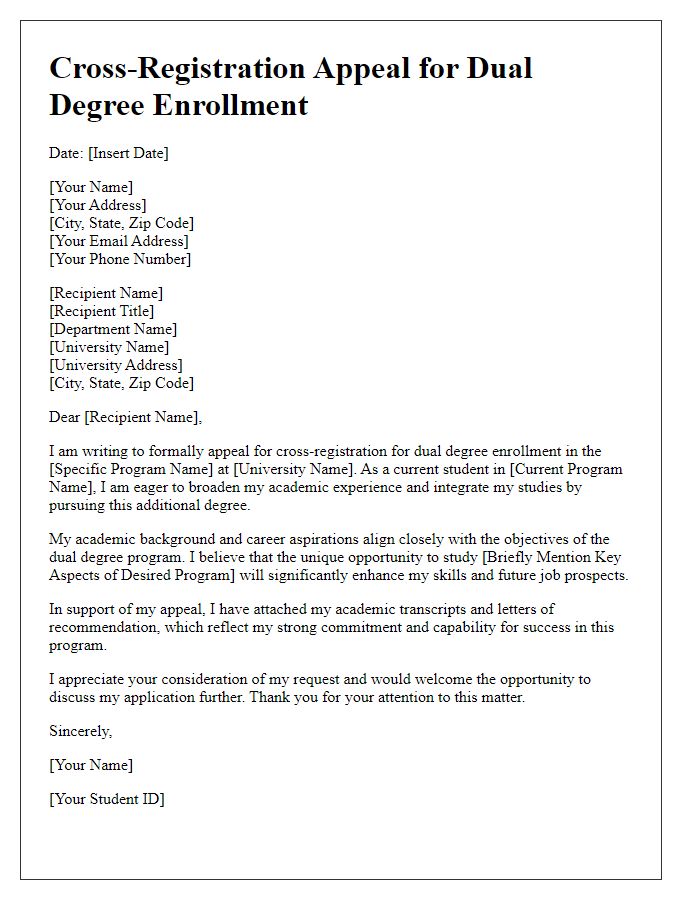
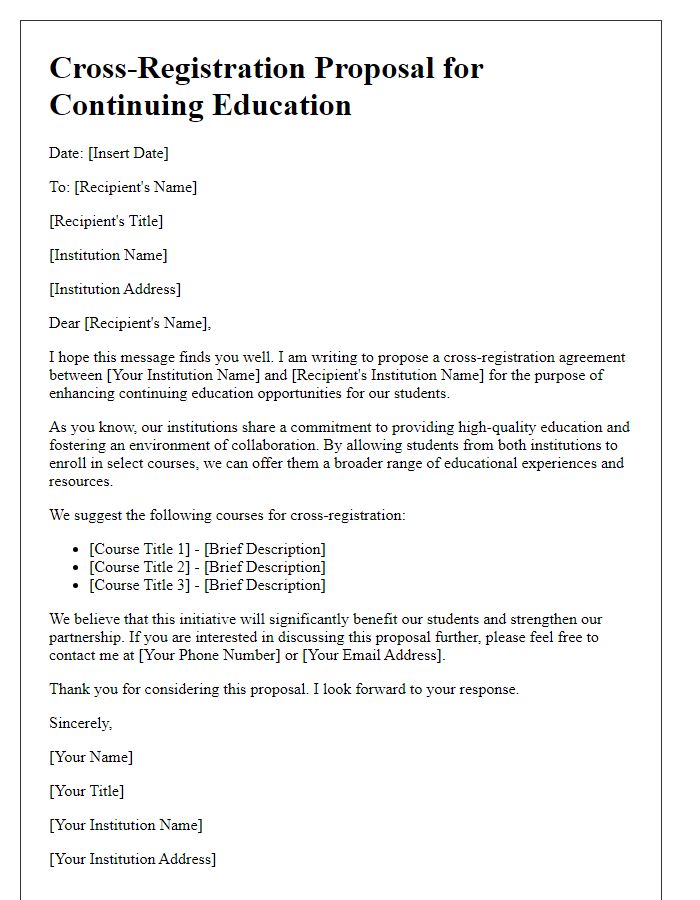
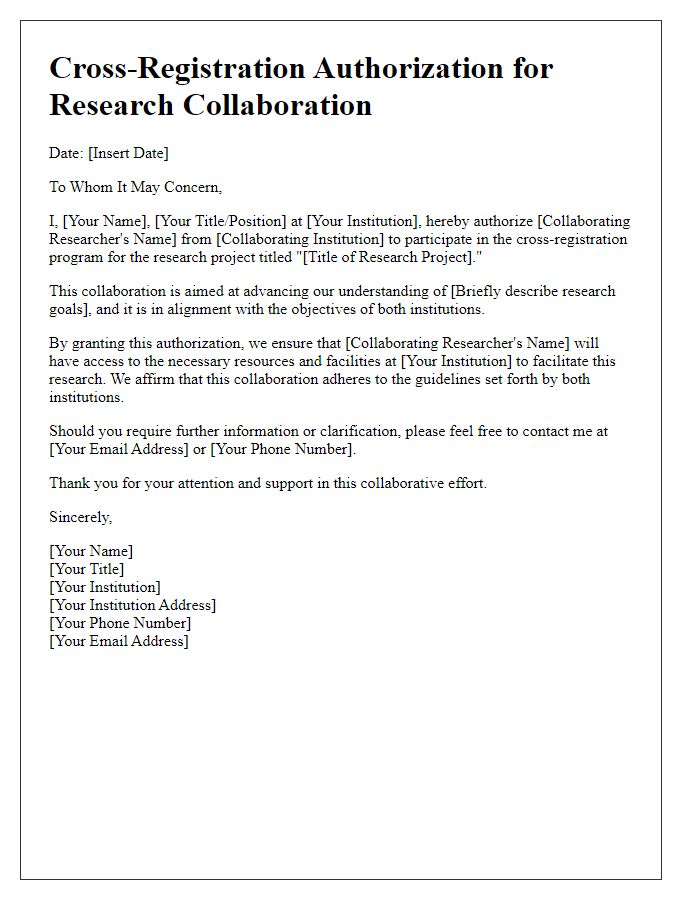


Comments